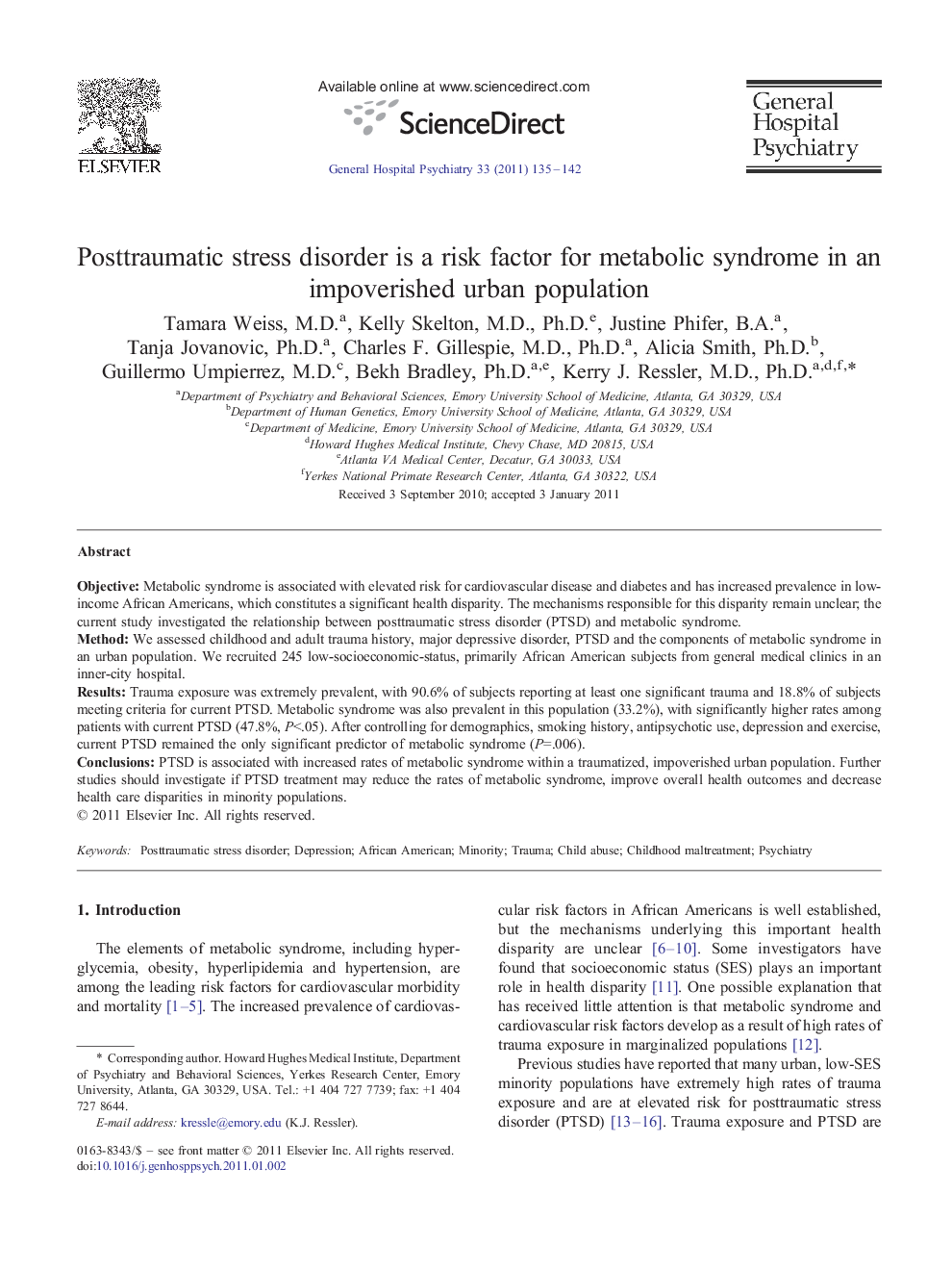| Article ID | Journal | Published Year | Pages | File Type |
|---|---|---|---|---|
| 3237841 | General Hospital Psychiatry | 2011 | 8 Pages |
ObjectiveMetabolic syndrome is associated with elevated risk for cardiovascular disease and diabetes and has increased prevalence in low-income African Americans, which constitutes a significant health disparity. The mechanisms responsible for this disparity remain unclear; the current study investigated the relationship between posttraumatic stress disorder (PTSD) and metabolic syndrome.MethodWe assessed childhood and adult trauma history, major depressive disorder, PTSD and the components of metabolic syndrome in an urban population. We recruited 245 low-socioeconomic-status, primarily African American subjects from general medical clinics in an inner-city hospital.ResultsTrauma exposure was extremely prevalent, with 90.6% of subjects reporting at least one significant trauma and 18.8% of subjects meeting criteria for current PTSD. Metabolic syndrome was also prevalent in this population (33.2%), with significantly higher rates among patients with current PTSD (47.8%, P<.05). After controlling for demographics, smoking history, antipsychotic use, depression and exercise, current PTSD remained the only significant predictor of metabolic syndrome (P=.006).ConclusionsPTSD is associated with increased rates of metabolic syndrome within a traumatized, impoverished urban population. Further studies should investigate if PTSD treatment may reduce the rates of metabolic syndrome, improve overall health outcomes and decrease health care disparities in minority populations.
